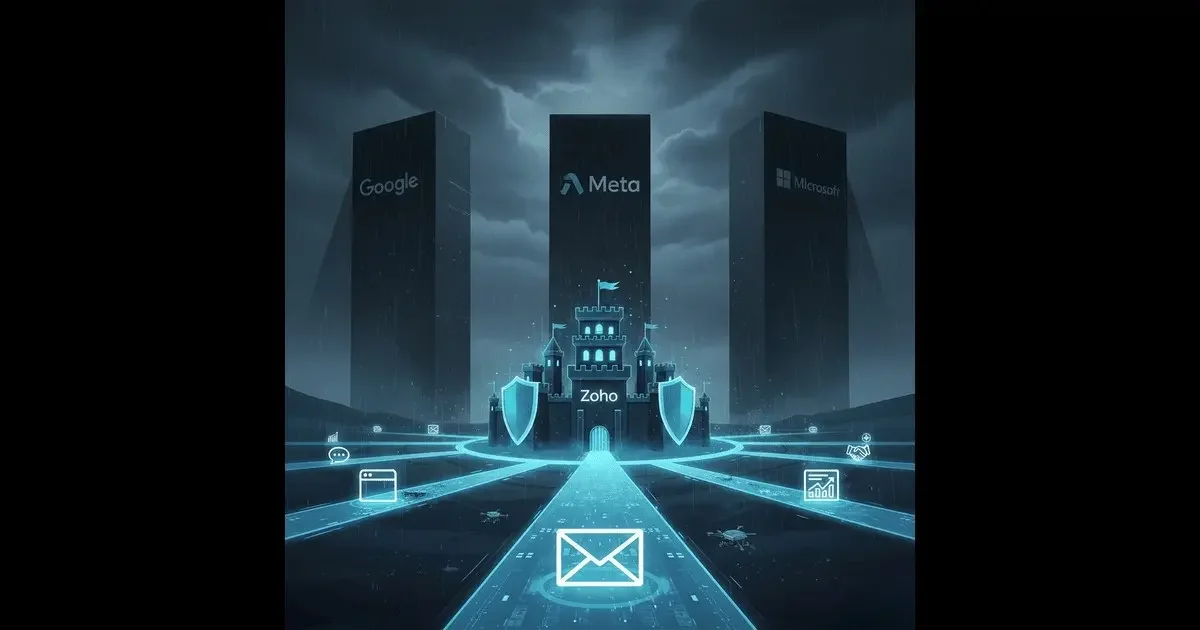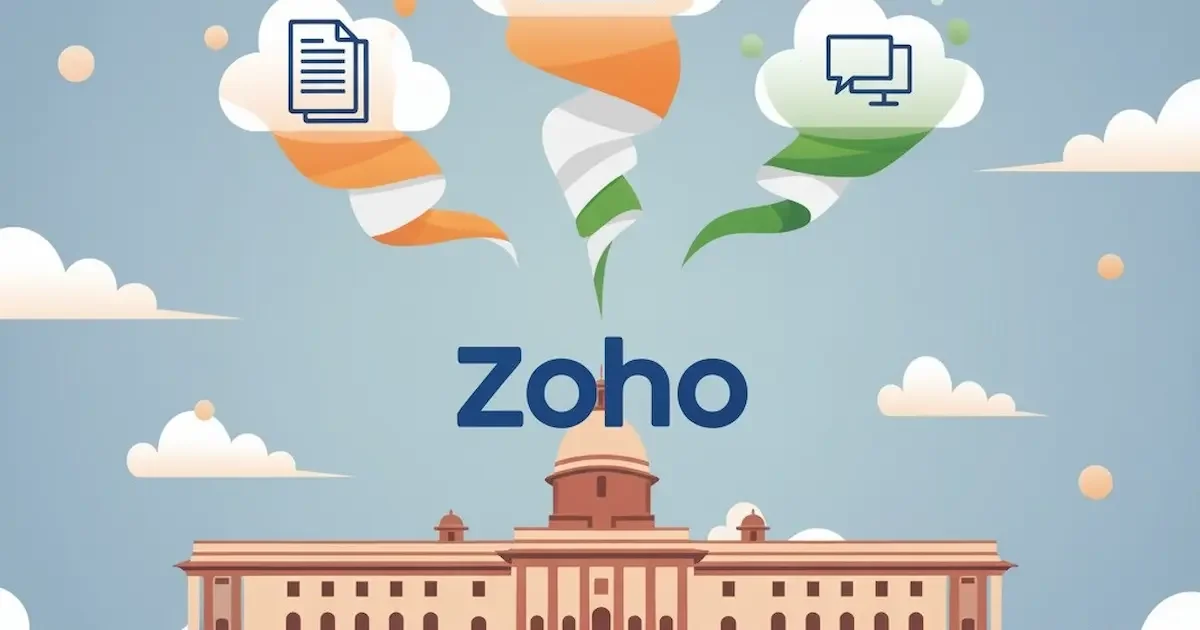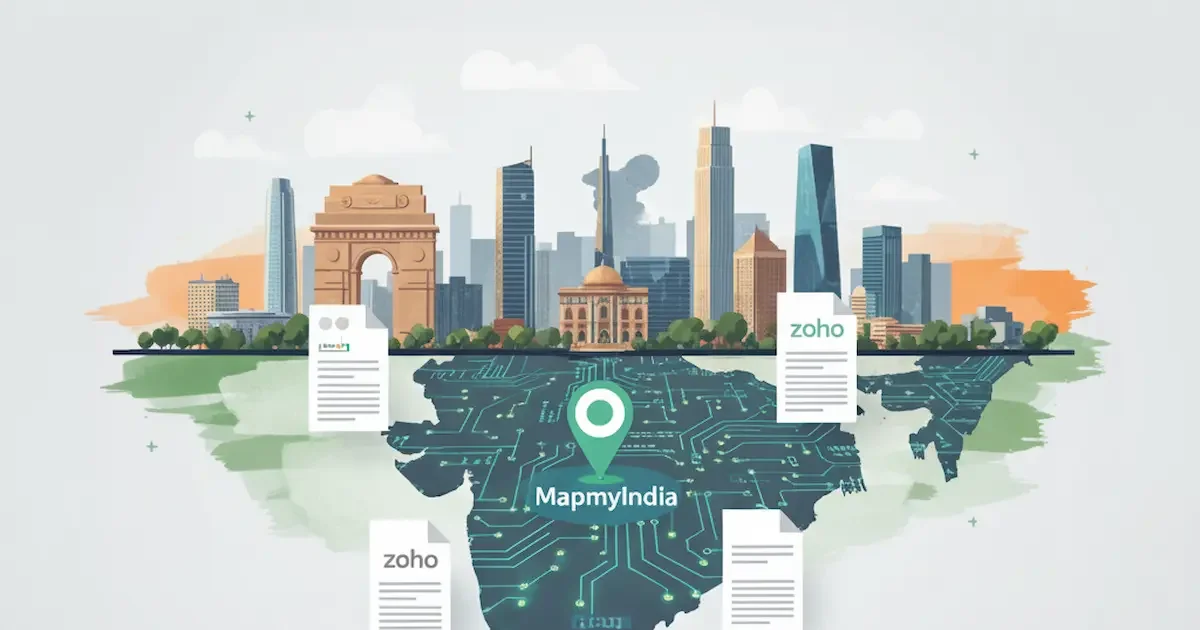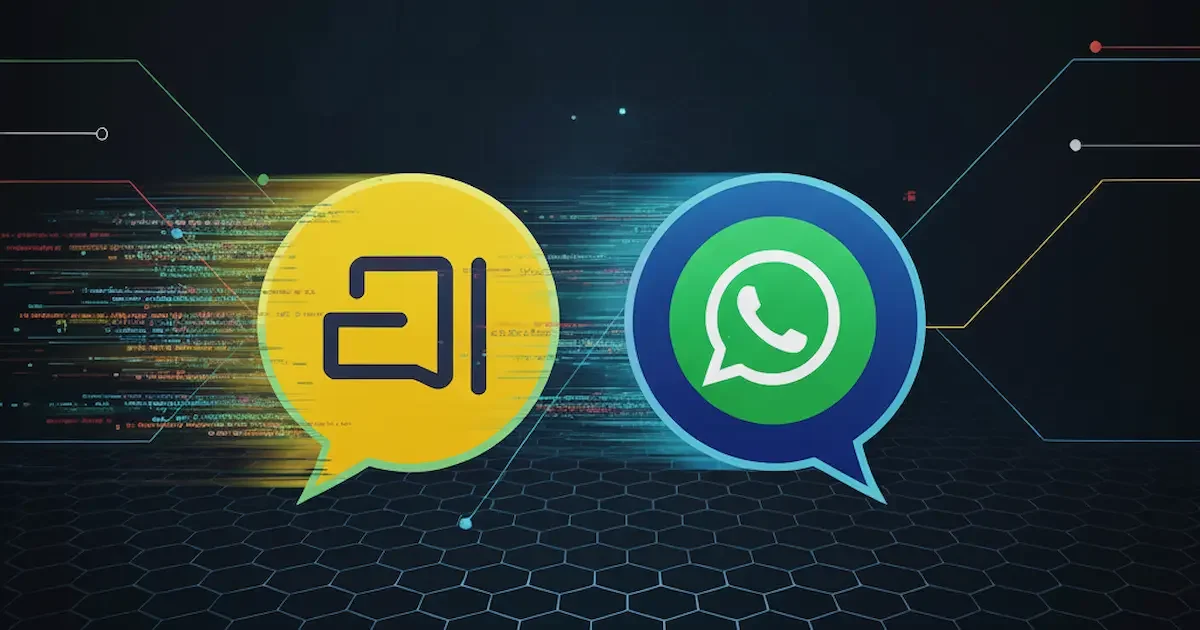Zoho's Quiet War on Big Tech: The Indian Giant is Coming for Your Browser and Your Chat App
Let's be real. For most people, Zoho is that company that makes the "other" office software. The sensible, no-frills, dal-chawal alternative to the flashy biryani of Google Workspace or Microsoft 365. It's solid, it's reliable, and it's proudly Indian. But exciting? Hardly.
Well, it's time to change that channel. While we've all been distracted by AI chatbots and tech billionaire cage matches, Zoho has been quietly assembling a rebel army. And now, they're launching a full-frontal assault on the very tools you use to live your digital life.
The company isn't just launching new products. It's making a ridiculously bold statement by launching its own web browser and a dedicated instant messaging app, Arattai (meaning 'chat' in Tamil), as a direct alternative to WhatsApp.
Stop and think about that for a second. An Indian company is taking on Google Chrome and Meta's WhatsApp. At the same time. This isn't just ambition. It's either madness or genius, and I'm leaning towards the latter.
Why the Hell Would a B2B Company Build a Browser?
On the surface, it makes no sense. The browser wars are over, right? Google Chrome won. It's the default gateway to the internet for billions. Why would anyone bother to build another one?
The answer has nothing to do with fancy features. It has everything to do with one word: Control.
The browser is the most valuable piece of digital real estate on the planet. It's where you work, shop, and live. For companies like Google, it’s a firehose of user data that they use to build profiles and sell ads. Your every click, search, and keystroke is a product.
Zoho's entire philosophy is the polar opposite. Their business model is simple: you pay them for software, and they leave you alone. They have a strict "no ads, no tracking" policy. By building their own browser, they are creating a secure, private gateway to their own ecosystem. It’s a way of saying, "When you're in our world, your data belongs to you, and only you."
For a business using Zoho's suite of 50+ apps (from CRM to accounting), a native browser means tighter integration, better security, and an environment free from the prying eyes of competitors. It turns their software suite into a self-contained, fortified digital workspace.
Arattai: Taking the Fight to WhatsApp
If launching a browser was a strategic move, launching a chat app is a declaration of war. WhatsApp is so deeply embedded in Indian life that it's practically a utility, like water or electricity.
But it also comes with a giant, Meta-shaped asterisk. Privacy concerns, business policy changes, and the fact that it's owned by a data-hungry advertising behemoth leave a lot of users feeling uneasy.
Enter Arattai. Zoho's pitch is, once again, painfully simple and incredibly compelling: it's just a chat app. No ads. No tracking. No funny business with your data. Initially launched for its employees, Zoho is now scaling it for the public, betting that there's a growing appetite for communication tools that don't treat your conversations as a commodity.
It's a direct shot at the core weakness of its biggest competitors. While they are busy figuring out how to monetize you, Zoho is focused on just giving you a product you pay for. Revolutionary, I know.
The Grand Plan: Building a Digital 'Republic'
Don't mistake this for a company just throwing new apps at the wall. This is a calculated, long-term strategy. Sridhar Vembu, Zoho's founder, isn't just building a company; he's building a self-reliant digital nation.
By owning everything from the foundational apps (word processors, spreadsheets) to the communication layer (chat, email) and now the gateway itself (the browser), Zoho is offering a complete escape from the Big Tech ecosystem. It’s a walled garden where the user, not the advertiser, is the citizen.
It's a quiet, methodical, and profoundly Indian rebellion. It's not about being flashy. It's about being self-reliant. It's about building things that last. And it’s a direct challenge to the idea that we have to trade our privacy for convenience. Zoho is betting we don't, and they're building the tools to prove it.



